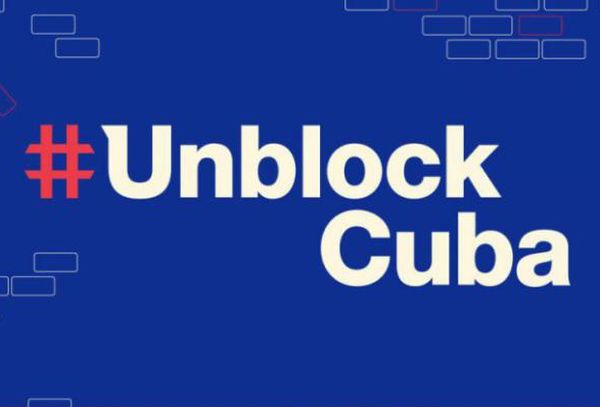Both American and Western press have precise regulations to avoid the releasing of information about the truth behind this subject, collected in thousands of official documents that confirm it.
One of those documents was the study prepared by George W. Ball, Under Secretary of State, in collaboration with the CIA, presented on February 6, 1964 to President Lyndon Johnson, in which he responded to a request reflected in the Memorandum of National Security Action 274, of December 20, 1963, to restrict Cuba’s foreign trade.
This study ensures that US actions to reduce this trade were reflected in the small or no increase in Cuban imports, together with a 60% decrease in the calls of merchant ships in ports on the Island and a dramatic reduction in the commercial aviation, although Spain was against those actions.
It states that American companies had cooperated and the pressures exerted on foreign companies associated with them were effective, although they warned that the expansion of this policy would imply extraterritoriality problems with allied countries.
This study consists of an annex with 19 recommendations that, according to Ball, were feasible to execute, despite the fact that they could create friction in the foreign relations of the United States. (Memorandum of Conversation, FRIUS, 1964-1968. Vol. XXXII)
The recommendations are:
1. That the President make known to all agencies of government that the restriction and reduction of free-world economic ties with Cuba is a basic national policy objective.
2. That the President or the Secretary of State take an early opportunity to make a public declaration on Cuban of our policy on free-world economic ties with Cuba.
3. Use the American business community as an instrument of coercion on foreign companies.
4 and 5. Intensify pressure at all levels of government on countries that maintain commercial relations with Cuba and carefully evaluate them country by country, to make it impossible to:
1. Trade in commodities we consider critical to the Cuban economy.
2. Long-term commitments for the purchase of Cuban sugar.
6. That a vigorous attempt, centered in Washington, be made to promote a multilateral agreement among countries trading with Cuba on restrictions acceptable to us on the sale of critical commodities to Cuba.
7. Make this policy known in NATO forums and in Japan.
8 and 9. Put diplomatic pressure on governments that make up the OAS to approve resolutions against Cuba aimed at imposing trade restrictions, and include the request to other nations of the world to take similar actions.
10. Apply current United States legislation to countries involved and not rely only on presidential statements.
11. It is convenient and feasible to approve additional legislation or executive regulations, aimed at countries and commercial companies that have relations with Cuba.
12. Demand greater control on commodities produced by North American companies and their branches abroad, to prevent their acquisition by Cuba.
13. Carefully review the extension of the Regulations and Control of Cuban Assets to subsidiaries of US companies. Intensify covert actions (sabotage) against critical commodities destined for Cuba.
14. Hinder by any means the acquisition by Cuba of critical commodities to its economy.
15. Discreet use of the press, through the publication of articles, making known the rigorous controls of the United States government on companies that have relations with Cuba, suggesting the existence of a “blacklist.”
16. Use groups of Cuban exiles to maintain pressure on these companies, making them see that they will have no future in a post-Castro Cuba.
17, 18 and 19. They point out that the Coordinator of Cuban Affairs of the Department of State must establish: A working group that recommends measures to apply to reduce Cuba’s monetary income from the sale of sugar.
Intensify economic espionage, through the reports of the United States Foreign Service and the actions applied, paired with the investigations of the Department of Commerce, regarding the commercial relations of the free world with Cuba.
At the end of this study, the exception of limitations on CIA secret agents and their increase is proposed.
On February 9, 1964, information released by the Yankee press agency UPI, United Press International, stated from Washington that senior administration officials announced:
“The United States Government aims to intensify its pressure on its NATO allies, so that they stop selling industrial and transportation equipment to Fidel Castro’s regime… the North American market is much more important than that of Cuba and it is likely that “U.S. consumers rebel and decide not to buy products from countries that trade with Castro.”
On February 14, the U.S. State Department in a statement reminded countries that receive aid from the United States, including some from NATO, that as of that date the deadline set by Congress in December 1963, which forced the suspension of trade with Cuba and suppressed all military and economic assistance to Great Britain, France and Yugoslavia, because their governments refused to suspend trade with the Island. Japan and Spain did not accept Washington’s provisions either.
Nothing has changed in the Yankee purpose to suffocate the Cuban people, despite the fact that they shamelessly affirm that the Blockade does not exist.
That is why José Martí pointed out:
“The people of America are freer and more prosperous the further they are from the United States.”
 Escambray ENGLISH EDITION
Escambray ENGLISH EDITION





Escambray reserves the right to publish comments.